
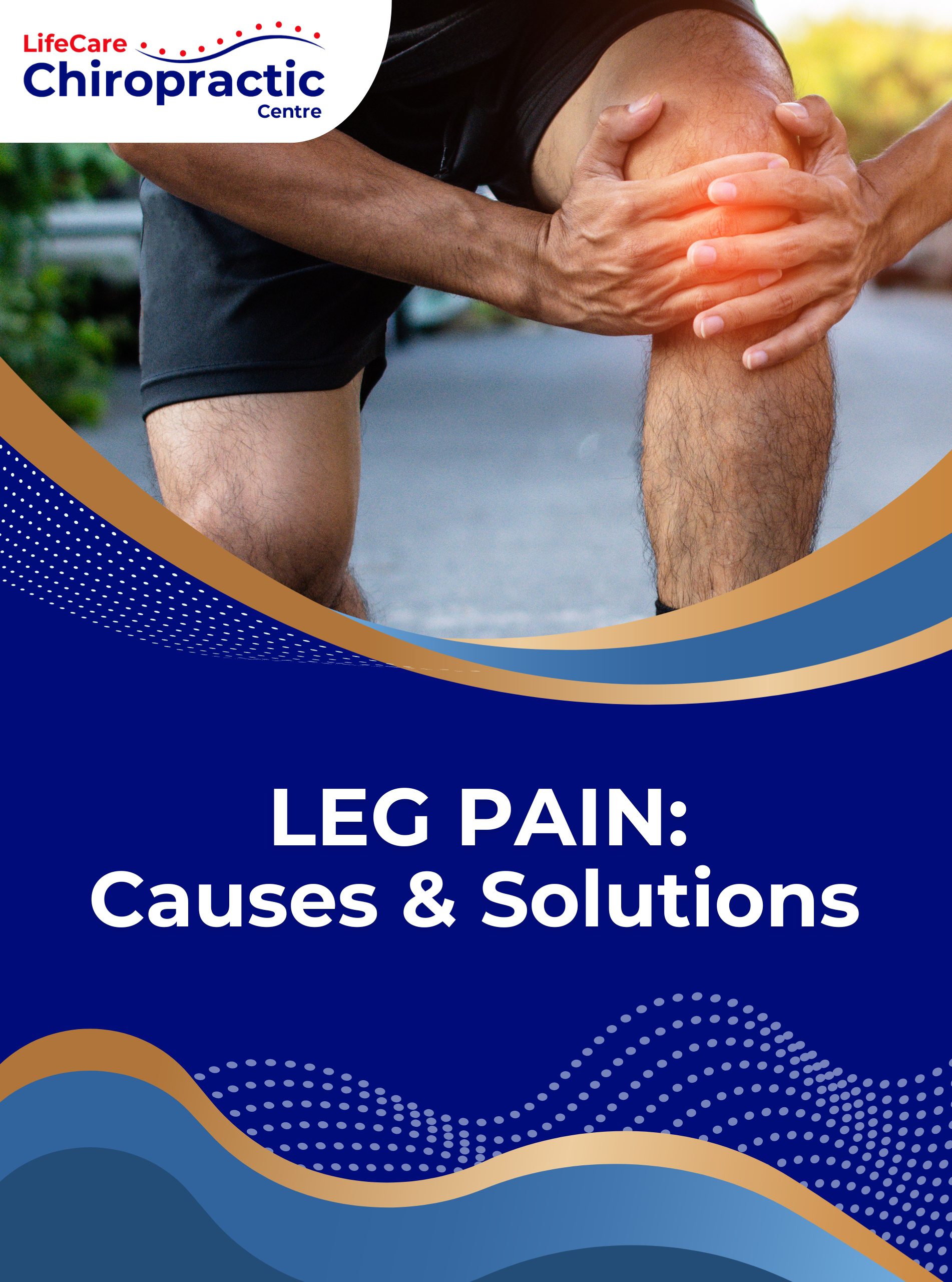
LifeCare Chiropractic Centre
28/05/2024
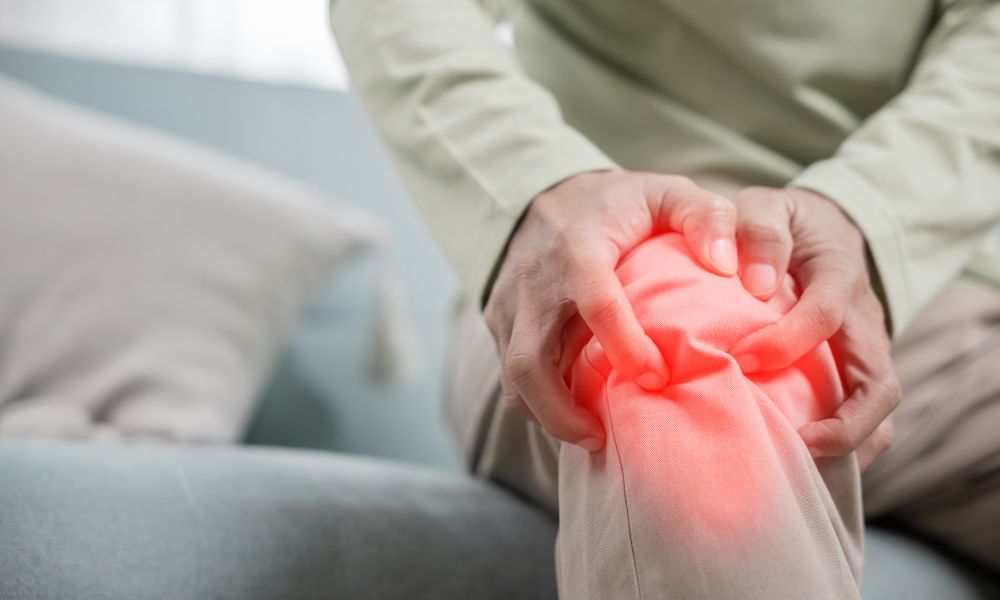
Leg pain is a common problem that can have many different causes. It can affect your daily life and make it hard to move around. Understanding the causes and finding effective solutions for leg pain is crucial for relieving discomfort and improving mobility. In this article, we will explore the causes behind leg pain, the symptoms you might experience, and the best solutions to address it.
Causes of Leg Pain

Muscle Strain
Overuse, sudden movements, or repetitive activities can lead to muscle strain in the legs, causing pain and discomfort. This is common in athletes or anyone who engages in intense physical activities without proper warm-up or stretching.

Injury
Accidents such as falls, twists, or direct blows to the legs can result in sprains, strains, fractures, or other injuries, leading to pain. For example, a twisted ankle or a broken leg bone can cause severe pain and require immediate medical attention.

Joint Issues
Conditions like arthritis, bursitis, or tendonitis can affect the joints in the legs, causing inflammation, stiffness, and pain. Arthritis, for instance, can lead to chronic joint pain and swelling, making it difficult to walk or stand for long periods.
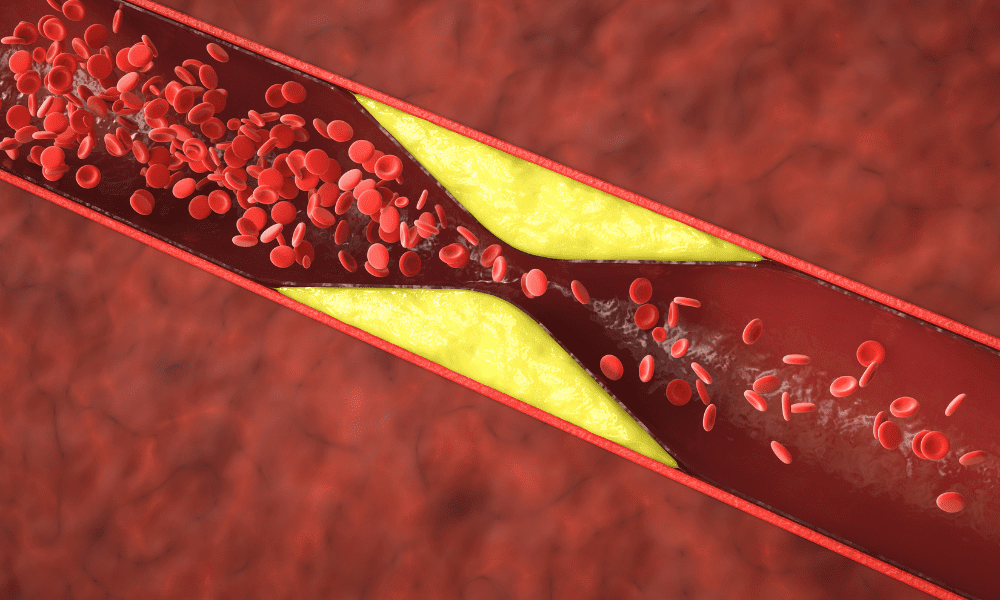
Poor Circulation
Reduced blood flow to the legs due to conditions like peripheral artery disease (PAD) or deep vein thrombosis (DVT) can result in cramping, swelling, and pain. PAD causes narrowed arteries, reducing blood flow, while DVT involves blood clots in the veins, both leading to significant discomfort.

Structural Abnormalities
Congenital abnormalities, spinal misalignment, or issues with the bones and joints can contribute to chronic leg pain. For example, flat feet or differences in leg length can cause uneven stress on the legs, leading to pain over time.

Medical Conditions
Underlying medical conditions like diabetes, fibromyalgia, or cancer can manifest with leg pain as one of the symptoms. Diabetes can cause peripheral neuropathy, leading to nerve damage and pain in the legs, while fibromyalgia often results in widespread pain, including in the legs.
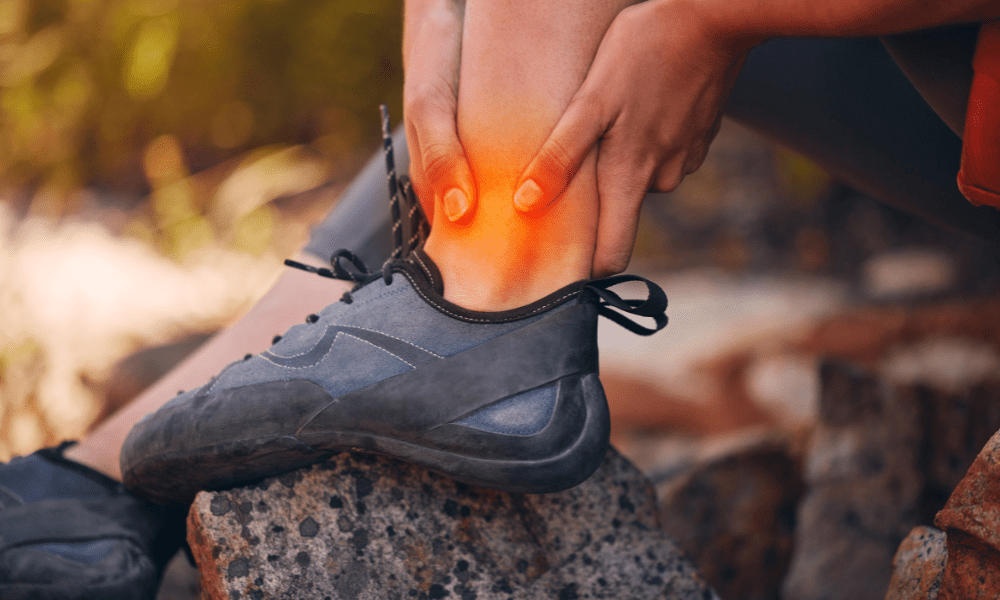
Nerve Compression
Compression of nerves in the lower back or legs, such as in sciatica or peripheral neuropathy, can cause radiating pain, numbness, or tingling sensations. Sciatica occurs when the sciatic nerve is compressed, often due to a herniated disc or spinal stenosis, leading to pain that travels down the leg.
Symptoms of Leg Pain
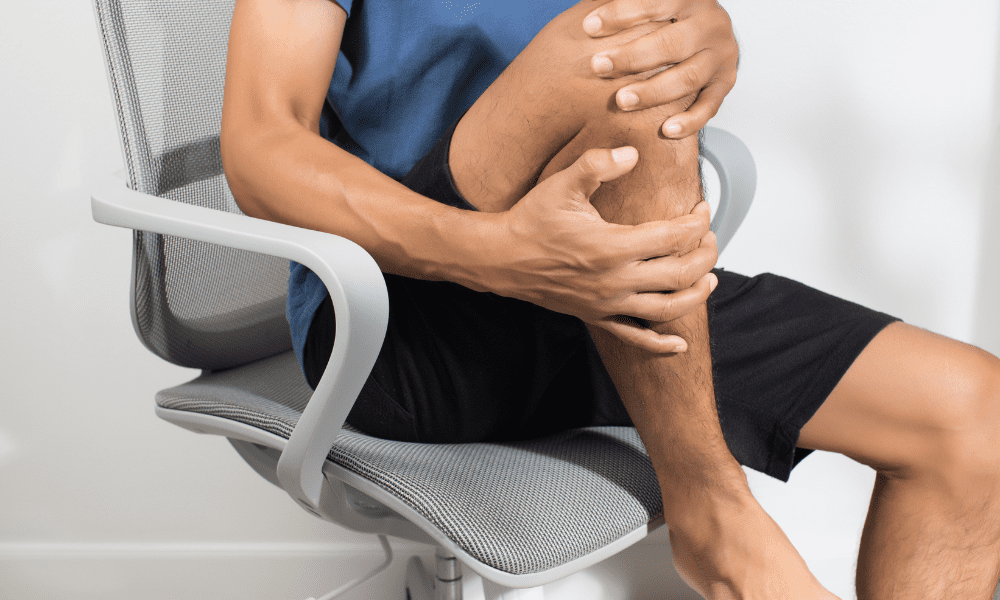
Aching or Throbbing Sensation
Persistent discomfort that ranges from mild to severe, often worsening with movement or activity. This type of pain can make it difficult to perform everyday tasks, such as walking or standing.
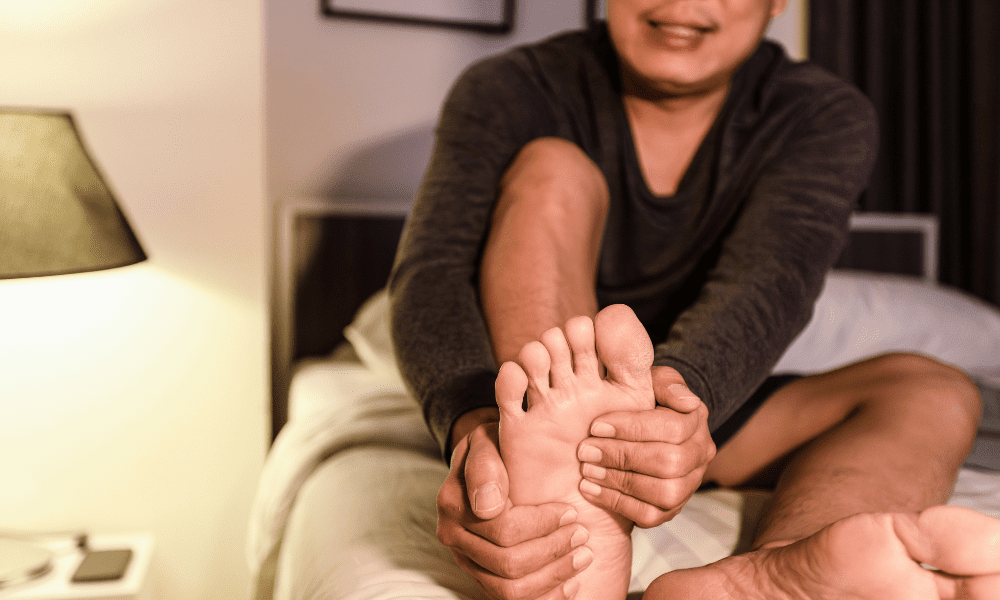
Stiffness or Tightness
Feeling of stiffness or tightness in the muscles or joints, making it challenging to move freely. Stiffness is often worse in the morning or after periods of inactivity, and it can limit your range of motion.
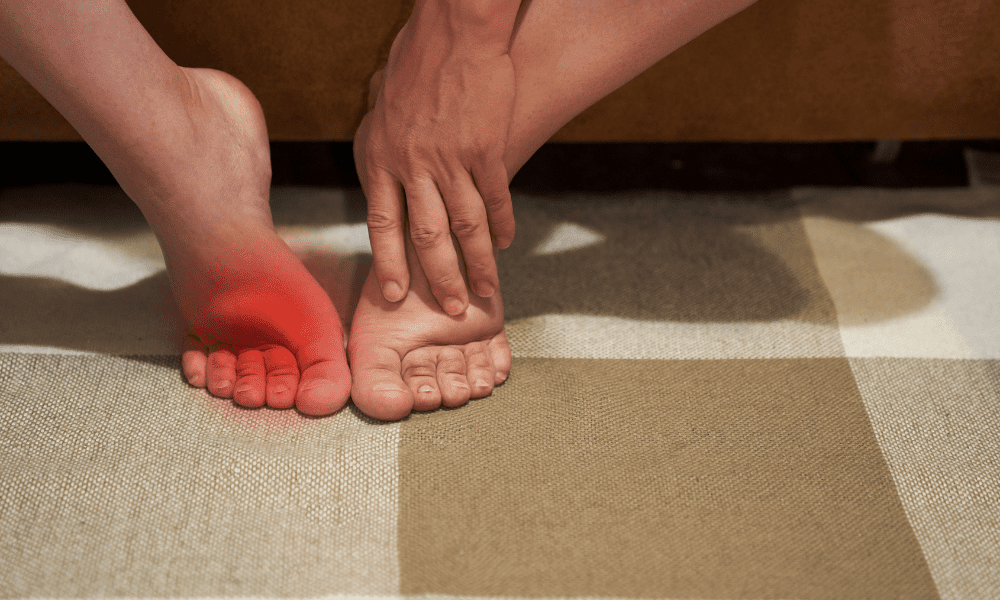
Swelling or Redness
Visible swelling, redness, or warmth in the affected area, indicating inflammation or injury. Swelling can be localized to a specific area or more widespread, depending on the cause.

Numbness or Tingling
Sensations of numbness, tingling, or pins-and-needles in the legs, possibly due to nerve compression or circulation issues. These sensations can affect your ability to feel touch or temperature changes and can lead to a feeling of weakness.

Weakness or Instability
Difficulty bearing weight on the legs, weakness, or instability while walking or standing. This can increase the risk of falls and make it challenging to perform daily activities safely.

Radiating Pain
Pain that radiates from the lower back, buttocks, or thighs down to the legs, often indicative of nerve-related issues like sciatica. This type of pain can vary in intensity and may be accompanied by other symptoms like numbness or tingling.
Solutions for Leg Pain
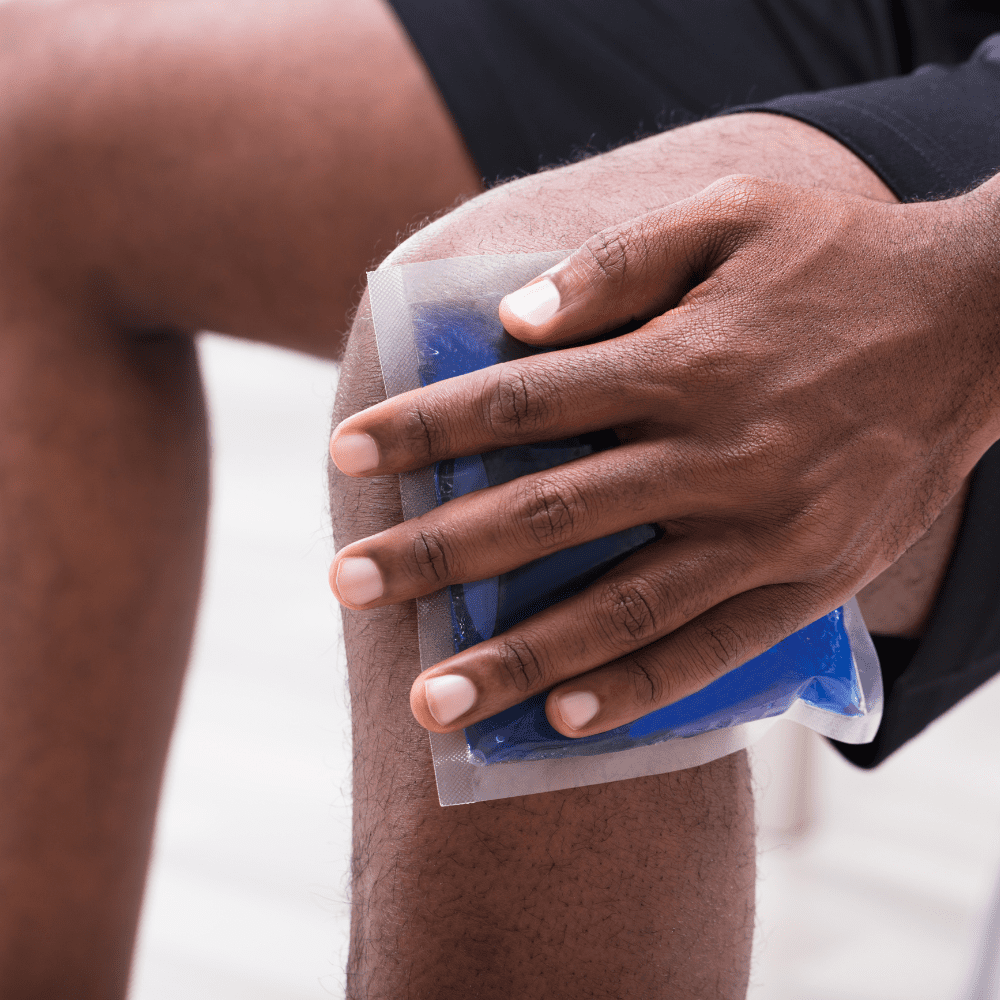
Rest and Ice
Resting the affected leg and applying ice packs can help reduce inflammation and alleviate pain, especially after acute injuries.

Pain Medications
Over-the-counter pain relievers like ibuprofen or acetaminophen can provide temporary relief from mild to moderate leg pain.

Physical Therapy
Targeted exercises, stretches, and manual techniques prescribed by a physical therapist can improve flexibility, strength, and mobility while reducing pain.

Bracing or Supportive Devices
Splints, braces, or orthotic inserts can provide support and stability to the legs, relieving pressure and reducing discomfort.
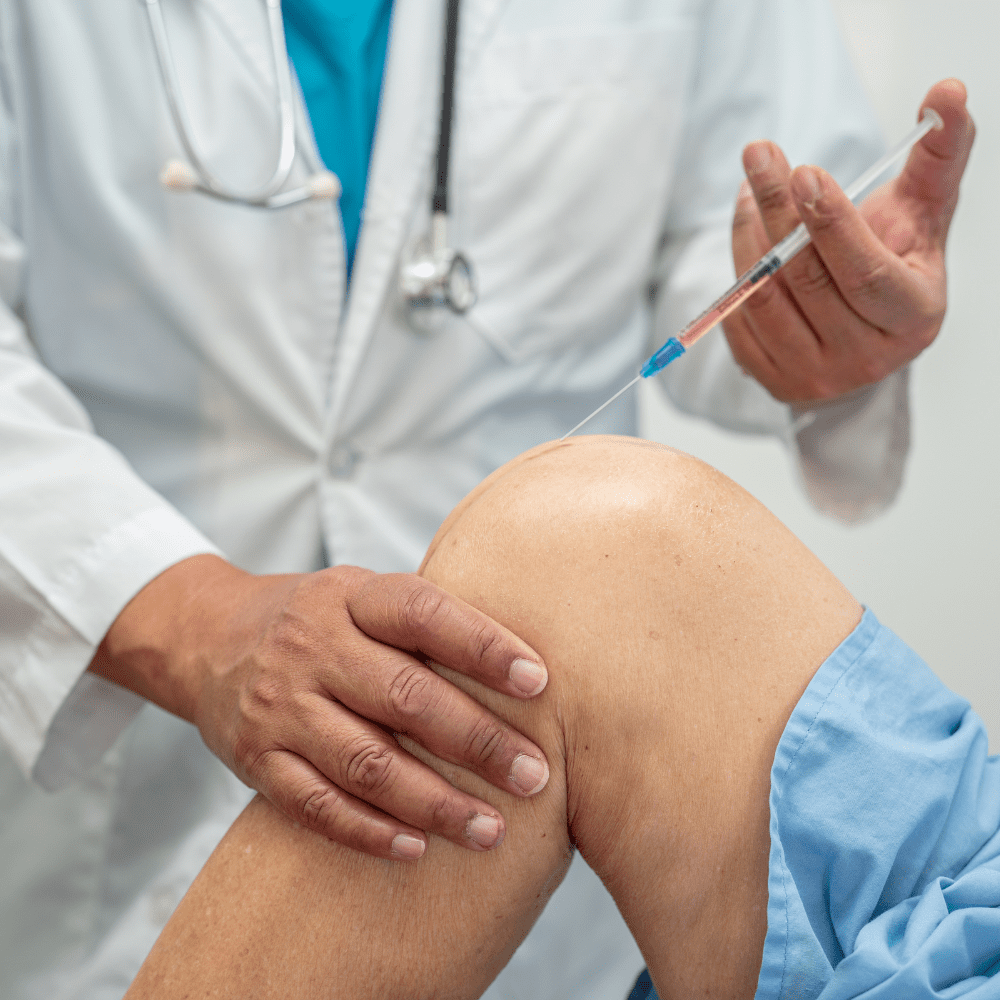
Injections
Corticosteroid injections or nerve blocks may be recommended for localized pain relief, particularly in cases of nerve compression or inflammation.
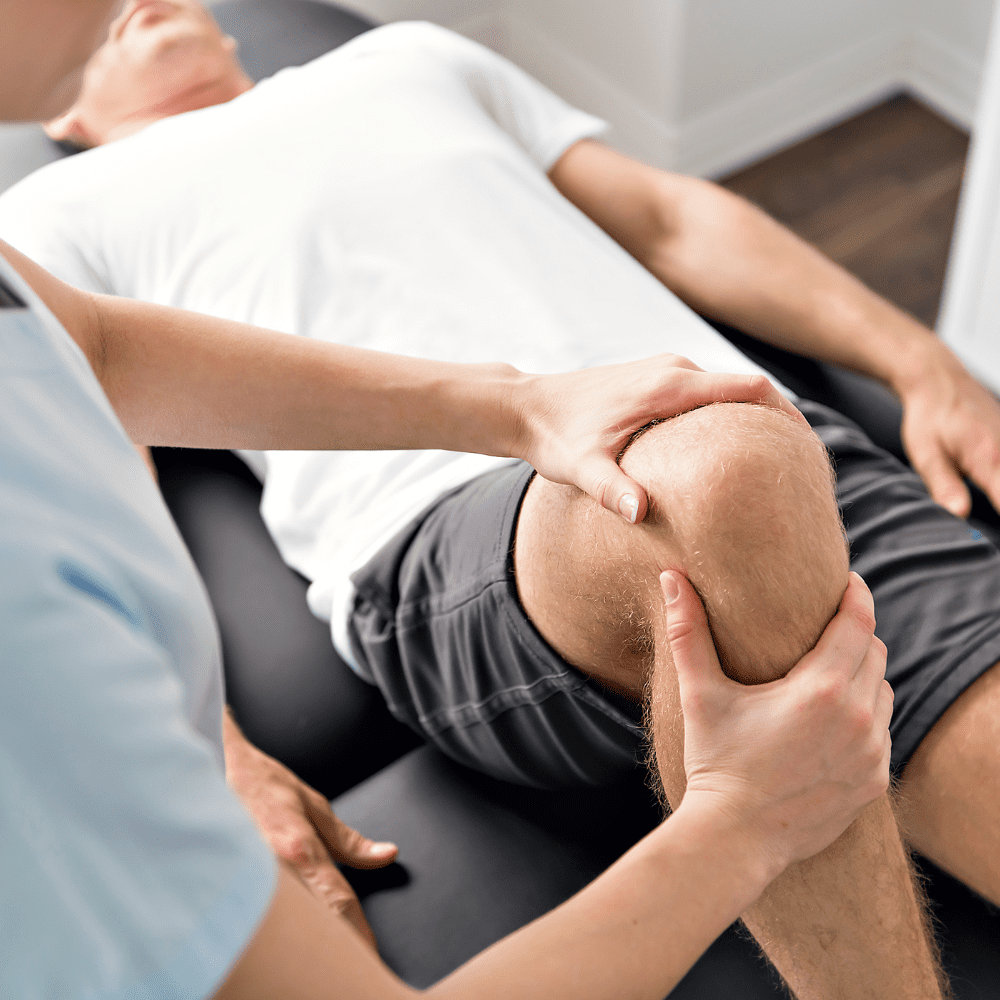
Chiropractic Care
Chiropractic treatment involves adjustments and manipulations to correct spinal alignment and improve nerve function. This can help relieve leg pain, especially if it is related to nerve compression or structural abnormalities. Chiropractors can also provide exercises and lifestyle advice to prevent future pain.

Surgery
In severe cases or when conservative treatments fail to provide relief, surgical intervention may be necessary to address underlying structural issues or injuries.

Lifestyle Modifications
Maintaining a healthy weight, practicing good posture, avoiding prolonged sitting or standing, and staying physically active can help prevent and manage leg pain.
Leg pain can result from many things, like overuse, injury, or medical conditions. Knowing the causes and symptoms is important to find the right solutions. Trying different treatments, including chiropractic care, and making healthy lifestyle changes can help reduce leg pain and improve your life. Taking good care of your legs is key to staying healthy and active.
Aligning Wellness with LifeCare Chiropractic Centre
At LifeCare Chiropractic Centre, we provide comprehensive and personalised chiropractic treatment plans to improve your quality of life and have a stress free body.

Integrated & Personalised Care

Experienced Professional Chiropractor

Non-Invasive & Lasting Results

Get In Touch With Us Now!



